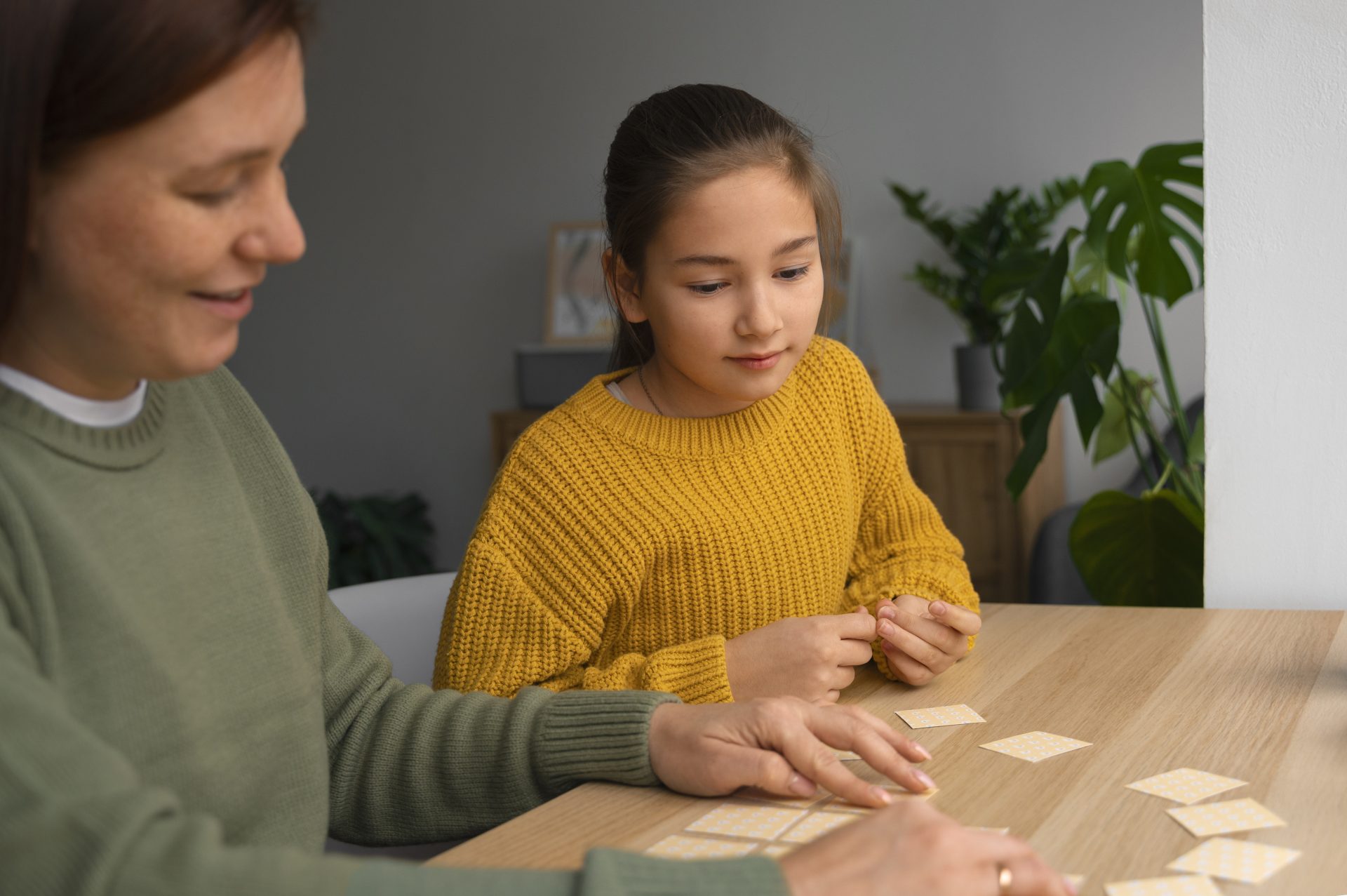Contents
- 1 What’s the Difference Between Homeschooling and Other Educational Methods?
- 2 The Benefits of Homeschooling for Special Needs
- 3 Challenges of Homeschooling for Special Needs
- 4 Top 7 Strategies for Homeschooling Special Needs
- 5 Why Do Parents Choose Legacy Online School for Homeschooling Children with Special Needs?
Traditional schools have a structured learning model. This model does not work for every child. Families look for other options, especially when their child has special needs. One good option for children with special needs is homeschooling.

Homeschooling special needs is a way of teaching focused on the unique needs of each child. Children learn at home. Parents have an opportunity to make the education of their children personalized in many ways. We will explore what homeschooling means for children with special needs.
What’s the Difference Between Homeschooling and Other Educational Methods?
The National Center for Education Statistics estimated there were 7.5 million students receiving special education services during the 2022-2023 school year. Homeschooling for children with special needs works a bit differently compared to their traditionally-schooled peers. It gives the family more freedom to meet each child’s unique learning and developmental needs. Here are some of the major ways it does so.

Individual Learning Speed
Kids learn at their own speed on homeschooling. This lowers stress and frustration kids face in school. Parents slow down or speed up lessons based on children’s progress. More time is spent on tricky subjects, and children move faster through easier ones.
Custom Curriculum
Parents or teachers build lessons around the child’s strengths and challenges. There’s no set curriculum to follow. Families focus on topics their child enjoys. Special therapies fit into daily lessons. This makes learning for kids more effective.
Learning Space
Children learn in a space suited to their needs. Homeschooling takes place at home, outdoors, or wherever the child focuses best. This makes learning much easier and more enjoyable for children sensitive to noise or distractions.

Emotional Support
Parents or teachers give one-on-one support at home. Teachers don’t have time for every student in traditional schools. Homeschooling allows parents to step in and help kids right away. This gives children more confidence and motivation to learn.
Controlled Socializing
Social interactions are controlled by the family, based on the comfort of the child. Group settings found in traditional schools create overwhelming situations for these children. Homeschooling offers children the opportunity to apply learned social behaviors in smaller, more controlled social activities.
The Benefits of Homeschooling for Special Needs
Homeschooling for special needs children opens up unique opportunities. Here are the main advantages.

Focus on Strengths
Parents or special needs educators focus on what the child does well. Lessons are built around the child’s strengths. This keeps the child more engaged and motivated. A positive learning experience reduces frustration. Small successes boost the child’s confidence, which then spreads to other areas of life and learning.
Adaptable Teaching Methods
Homeschooling lets parents and special needs educators teach in ways working best for the child. They use projects, visuals, or go outdoors. Learning remains interesting and according to the child’s style. This makes the child less distracted and enjoy learning more.
Reduced Pressure
Children feel less pressure and stress without the strict structure of regular schools. Homeschooling allows kids to study in a peaceful atmosphere and learn things at their own pace. Such an environment allows students to be attentive to their learning processes and know things better. They skip the unnecessary tests and deadlines in the process of mastery.
Incorporation of Life Skills
Homeschooling enables parents or teachers to pass on life skills to children in addition to school curricula. They teach cooking, budgeting, and time management skills among others. These life skills are important for special children who must be independent.
Regular Feedback
Parents or educators give quick and useful feedback for kids. Children fix mistakes right away instead of waiting for their turn like in regular schools. This fast response helps prevent frustration and keeps kids focused.
Challenges of Homeschooling for Special Needs
Homeschooling is a comfortable way to teach special needs children. Even this method has its challenges.

Limited Social Interaction
Children have fewer chances to interact with peers in person. This slows down their social development, especially for special needs children who benefit from face-to-face interactions. Parents seek out social opportunities outside the home.
Dependence on Parental Involvement
Homeschooling requires active involvement of the parents, even when the child is enrolled in an online school. Parents provide extra support during lessons. The child requires strong commitment by the parents to keep them engaged and making progress.
Limited Access to Specialized Services
Online schools don’t offer specialized services like speech or occupational therapy. Finding these services privately is expensive for families and takes a lot of time. This creates financial and emotional pressure.
Technology-Related Problems
Homeschooling and online schools depend on technology, which is hard for some families. Issues like bad internet or broken devices interrupt learning. It’s difficult for some children with special needs to use online platforms or tools. The child’s learning suffer without good technology.
Top 7 Strategies for Homeschooling Special Needs
Homeschooling special needs children requires thoughtful planning and creativity. Here are seven strategies to help make homeschooling more effective.

Create a Structured Routine
Children with special needs do well when parents set a consistent daily routine. Parents set clear times for lessons, breaks, and activities. This structure helps children feel secure and focused. It helps kids develop good habits over time.
Use Differentiated Instruction
Virtual platforms offer the opportunities for differentiation of instruction to each child’s learning style. Teachers present different formats of materials, such as videos (YouTube), interactive lessons (Nearpod), or text-based resources (Google Docs). Teachers use these formats to suit visual, auditory, and kinesthetic learners. Adaptive platforms (Khan Academy) adjust task difficulty based on the students’ performance. Teachers group students by learning needs and give targeted instruction using breakout rooms (GoogleMeet) or small-group video sessions.
Develop Individualized Education Plans (IEPs)
IEPs focus on making and using different plans related to the student’s education in virtual classrooms. Traditional classroom strategies are modified for online learning. Teachers, with the help of the parents, therapists, and specialists, create a plan according to the needs of the student. Virtual IEP meetings help in keeping everyone updated on how the student is faring. Online assessment and communication facilitates the need to make changes whenever necessary.
Integrate Assistive Technology
Helping students with disabilities in online homeschool settings involves using assistive tools. Teachers use screen readers like JAWS, speech-to-text software like Microsoft Azure Speech, and communication devices like TouchChat. Online platforms like Google Classroom have features such as text magnifiers, color contrast, and keyboard navigation. Teachers show students and parents how to use these tools. Educators create an inclusive virtual classroom by integrating these technologies into daily lessons.
Set Realistic Goals
Parents or educators set small, achievable goals based on the child’s abilities. Focusing on one task or skill at a time helps avoid overwhelming the child. Every small achievement is counted as significant and is rejoiced in by the parents and teachers to boost up the confidence of the child. Realistic goals translate into steady growth and minimize stress for families and educators.
Integrate Life Skills Into Lessons
Special needs children benefit when parents and educators incorporate practical life skills into the lessons. Such practical daily activities are cooking, cleaning, or money management. These help children learn to be independent and responsible.
Encourage Peer Interaction and Collaboration
Social interaction is essential for all students, especially those with special needs. Structured peer collaboration supports this process. Group discussions or projects are normally assigned in breakout rooms through Microsoft Teams. Online discussion forums are possible in Schoology, while collaborative documents are offered by Padlet. Group activities comprise peer review sessions or virtual games on Quizizz. Such social interactions help learners feel part of the community and decrease feelings of isolation in virtual learning spaces.
Why Do Parents Choose Legacy Online School for Homeschooling Children with Special Needs?
“My daughter has the opportunity to study when it is convenient for her and not to waste time traveling to school. The pedagogical team at the school is successful in teaching children through the virtual platform. Classes are conducted in an interactive format, which allows children to actively participate in the learning process and ask questions”
Parent’s review, SCHOOL IN

Legacy Online School assists students with special needs by providing individualized learning plans, specific tools, and focused teacher support. The school’s inclusive approach means every child receives lessons crafted to understand their needs and difficulties.
Learn more about our school’s support by visiting here.











